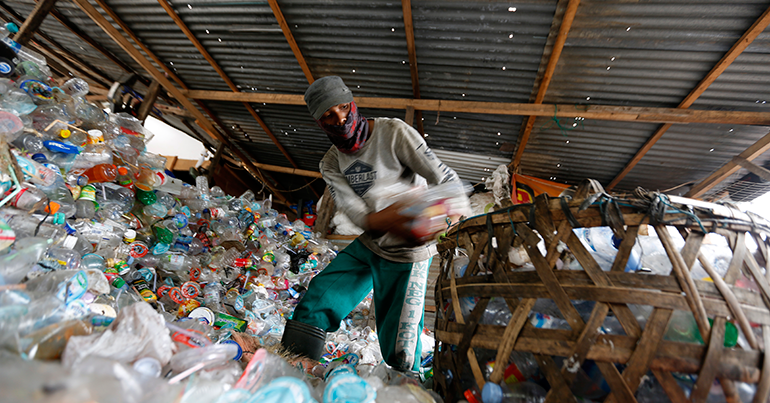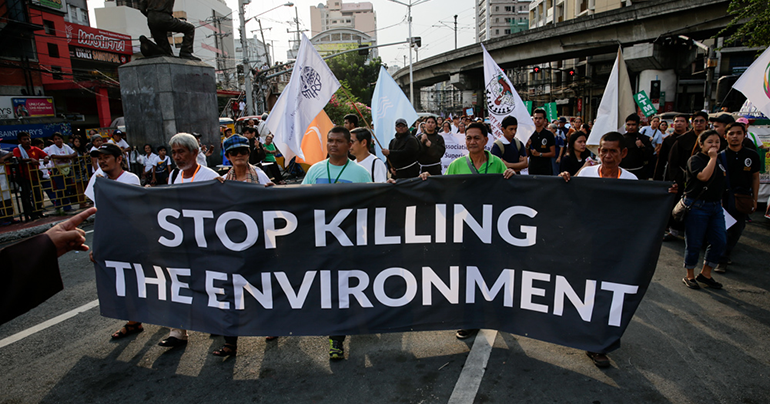The European Union will be launching a regional programme early next year to address sustainable consumption and production of plastic across Southeast Asia, officials announced last week

Southeast Asia has long been renowned for its vibrant tourist destinations, growing economies and rich cultures – but so too is it becoming notorious as one of the world’s leading plastic users and polluters.
In the hectic streets of the region’s growing cities, plastic is a part of daily life. Coffee comes in plastic cups; take-away items come in plastic bags; nearly all cocktails come with a plastic straw. With limited options for recycling across most Southeast Asian countries, the plastic waste is piling up on previously pristine beaches, floating in open waters, and suffocating marine life.
Eight million metric tons of plastic is dumped daily into the world’s oceans – and China, Indonesia, the Philippines, Thailand and Vietnam are together responsible for approximately 60% of this waste, according to a 2015 study by Ocean Conservancy.
In an effort to address the growing plastic pollution crisis in the region, the European Union (EU) Delegation to the Philippines announced during a forum on climate change in Makati City last week that the EU will soon be launching a regional programme to help tackle the problem.
The programme, which will launch in the first months of 2019, will focus on strengthening cooperation among Southeast Asian governments to develop regional strategies for limiting plastic production and enhancing effective waste prevention. To this end, the EU plans to share its member countries’ knowledge of effective solutions and technologies for plastic waste management.

The aim is to also further the EU’s goal of reducing the rate of climate change around the world, as plastics are by-products of fossil fuels, which are a primary cause of the intensifying global warming crisis. As industries shift from plastic production, they are supported in transitioning towards renewable energies that promote a healthier climate.
“[There are] two central problems we are facing in the Philippines, two problems linked to each other, although in a not very obvious way: the problem of climate change and the problem of plastic waste,” said Franz Jessen, EU Ambassador to the Philippines, at the forum on 12 October.
“The proliferation of plastic waste, which is particularly severe in the Philippines, places additional pressure on marine ecosystems as large amounts of plastic reach coastal waters every day,” Jessen said.
He added that as plastic finds its way into oceans and into marine animals’ stomachs, so too does it find its way into human diets, as people inevitably eat animals that have ingested unprocessed plastic waste.
[manual_related_posts]
Local industries should shift their focus from producing harmful single-use plastics, Jessen urged, and instead focus on using recyclable and biodegradable alternatives.
“If individuals take a sensible approach [to] plastic usage, they help transition away from fossil fuels and support a shift toward renewable energy and healthier climate,” he added.
While the EU programme for regional collaboration has yet to launch, Jessen said that the EU Delegation to the Philippines has already begun to work closely with the local government on developing a national strategy for improving plastic waste management and reducing waste leakage into the waters surrounding the country’s thousands of islands.
Environment
EU to launch programme to tackle SE Asia's alarming plastic pollution rates
The European Union will be launching a regional programme early next year to address sustainable consumption and production of plastic across Southeast Asia, officials announced last week

